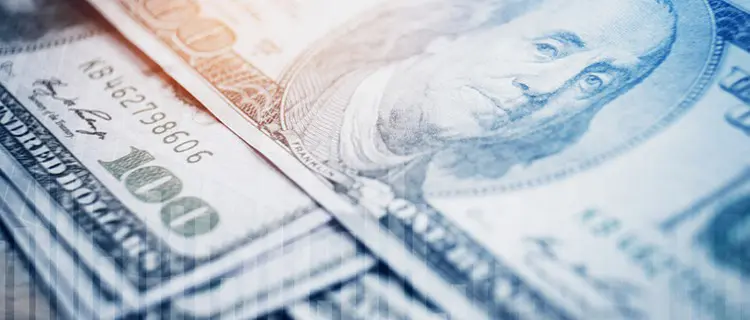

Across the world, over $1 billion of money is “laundered” each year, according to the United Nations. As the methods used to launder money become increasingly complex, federal agencies in the United States have adopted new and creative ways to investigate and identify money-laundering schemes. Once identified, the U.S. Department of Justice aggressively prosecutes defendants accused of money laundering – and the penalties for a conviction can be harsh. At Haas Law, our extensive experience and considerable resources are crucial to protecting you and your freedom if you have been accused of money laundering in Florida.
What Is Money Laundering?
Large-scale criminal enterprises, such as drug trafficking, illegal gambling, terrorism, and human trafficking rake in huge amounts of cash profits. Various banking and tax laws, however, make it difficult to deposit or spend that cash without accounting for its origin. That presents a problem for criminals that commonly leads to committing the secondary criminal offense of money laundering.
As the term implies, “money laundering” involves taking illegal (dirty) money and “washing” it so it appears to be legally obtained (clean) money. At the federal level, the laundering of monetary instruments is governed by 18 U.S. Code § 1956. The related crime of “engaging in monetary transactions in property derived from specified unlawful activity” is governed by18 U.S. Code § 1957 and is often included in a federal money laundering prosecution.
If convicted of money laundering, you face up to 20 years in prison and/or a substantial fine. To secure a conviction for money laundering, the prosecution must prove the following three elements beyond a reasonable doubt:
- That you conducted or attempted to conduct, a financial transaction.
- That you knew the property involved in the financial transaction represented the proceeds of unlawful activity.
- That you had one of the following intents:
- Intent to promote the carrying on of specified unlawful activity.
- Intent to engage in tax evasion or tax fraud.
- Knowledge that the transaction was designed to conceal or disguise the nature, location, source, ownership, or control of proceeds of the specified unlawful activity.
- Knowledge that the transaction was designed to avoid a transaction reporting requirement under State or Federal law.
What Should I Do If I Have Been Accused of Money Laundering?
Because the need to launder money usually stems from an underlying criminal enterprise, a money laundering investigation may involve various federal law enforcement agencies, such as the Drug Enforcement Agency (D.E.A.), the Federal Bureau of Investigation, or the Department of Homeland Security (D.H.S.). You may receive a “target letter” informing you that you are the target of a federal investigation; however, you could also be arrested and charged with money laundering without prior knowledge of an investigation. Whether you believe you are the target of a money laundering investigation, or you have already been charged with money laundering, there are some things you should and should not do to protect yourself and any possible defenses you have in a criminal prosecution, including:
- Do carefully read the target letter if applicable. A target letter will tell you what crimes are being investigated. Equally important, a target letter may include a request for documents or a request to appear in front of a Grand Jury.
- Do not destroy evidence. Whether you are under investigation or have been charged, your instinct may be to try and destroy any potentially incriminating evidence. Do not do that as it could lead to additional charges being filed against you. This also includes transferring assets out of your name to try and protect them from seizure.
- Do wait to respond to the target letter. While you should not ignore a target letter, do not contact the agency that sent it or respond in any other way until you have consulted with an attorney.
- Do not discuss the case with anyone except your attorney. It’s natural to want to talk to someone close to you if you have been charged with a serious criminal offense. You may also feel the need to talk to other targets or co-defendants; however, doing so could jeopardize your defense because anyone you talk to could be required to testify against you at a trial.
- Do contact a Florida money laundering defense attorney immediately. Accusations of money laundering are serious and carry serious potential penalties if convicted. The earlier you consult with an experienced Florida money laundering defense attorney, the sooner your attorney can start protecting you and your future.
How Can a Florida Money Laundering Defense Attorney Help Me?
If you are under investigation for money laundering, an experienced federal defense attorney can step in and work on your behalf to prevent that investigation from leading to formal charges being filed against you. If you are formally charged, an experienced Florida money laundering defense attorney will make sure your rights are protected to preserve all avenues of defense, advocate and negotiate on your behalf with the prosecution, and aggressively defend you at trial if necessary.
If you have been accused of money laundering, the Florida money laundering defense attorneys at Haas Law have the experience, resources, and tenacity needed to protect and defend you.
Call us at 407-755-7675, chat with us online, or submit our online form today. Because we understand that time is of the essence when federal law enforcement authorities are investigating you, our calls are answered 24 hours a day, allowing you to schedule an appointment as soon as possible to discuss your legal options.
